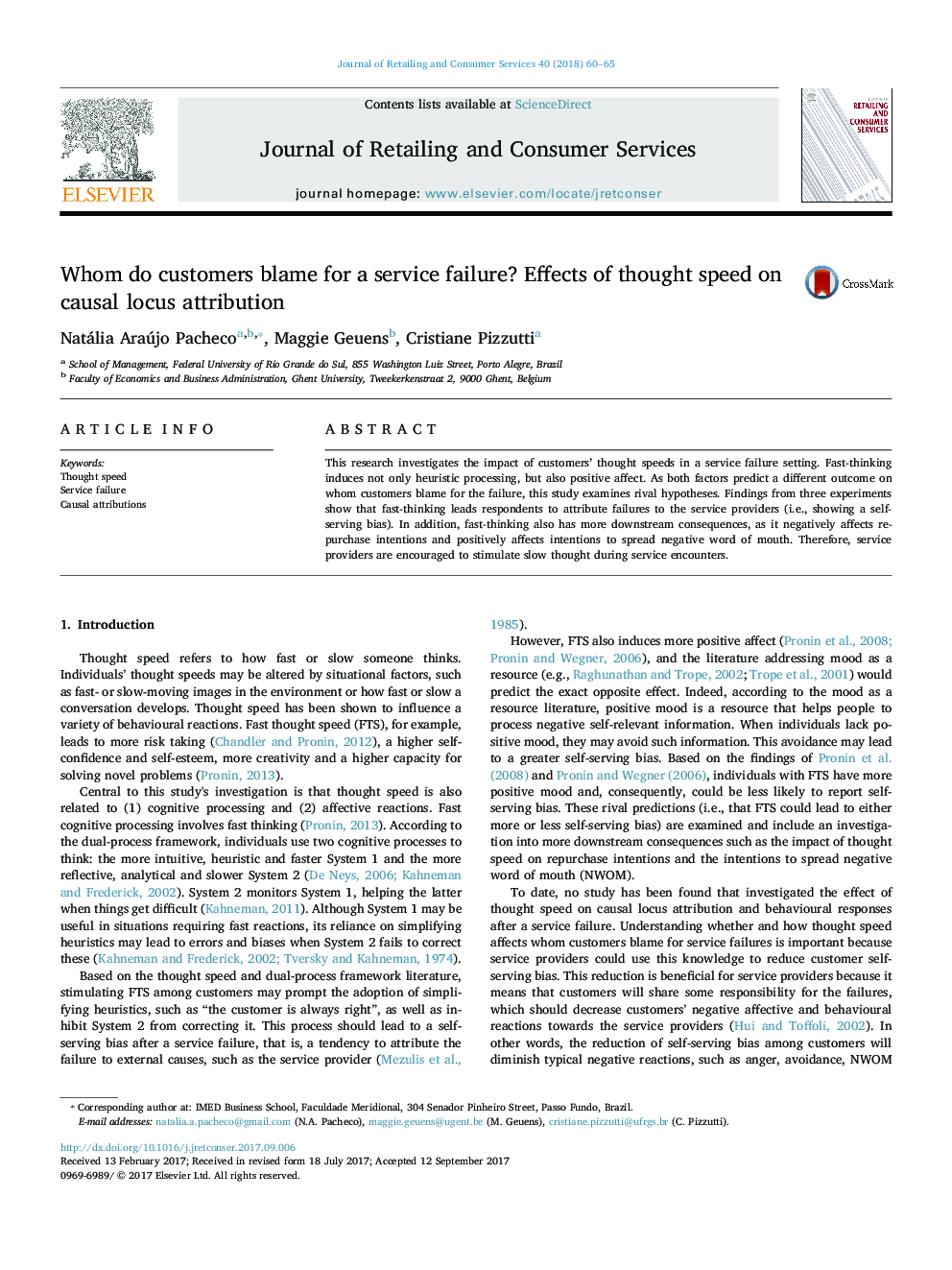| Article ID | Journal | Published Year | Pages | File Type |
|---|---|---|---|---|
| 5111207 | Journal of Retailing and Consumer Services | 2018 | 6 Pages |
Abstract
This research investigates the impact of customers' thought speeds in a service failure setting. Fast-thinking induces not only heuristic processing, but also positive affect. As both factors predict a different outcome on whom customers blame for the failure, this study examines rival hypotheses. Findings from three experiments show that fast-thinking leads respondents to attribute failures to the service providers (i.e., showing a self-serving bias). In addition, fast-thinking also has more downstream consequences, as it negatively affects repurchase intentions and positively affects intentions to spread negative word of mouth. Therefore, service providers are encouraged to stimulate slow thought during service encounters.
Keywords
Related Topics
Social Sciences and Humanities
Business, Management and Accounting
Marketing
Authors
Natália Araújo Pacheco, Maggie Geuens, Cristiane Pizzutti,
